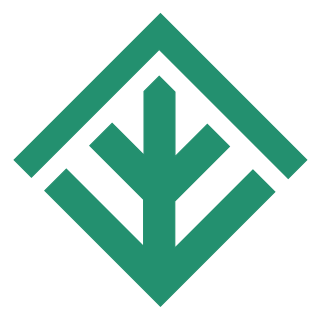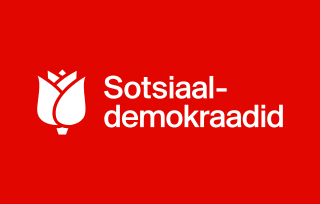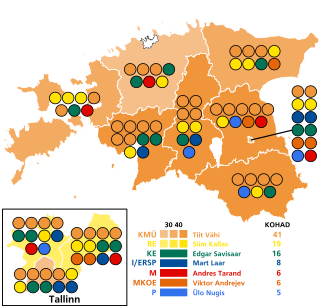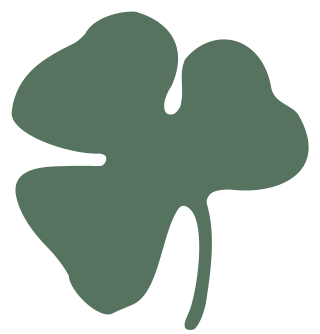Related Research Articles

The history of Estonia forms a part of the history of Europe. Human settlement in what is now Estonia became possible 13,000–11,000 years ago, after the ice from the last glacial era had melted, and signs of the first permanent population in the region date from around 9000 BCE.

The 1993 Canadian federal election was held on October 25, 1993, to elect members to the House of Commons of the 35th Parliament of Canada. Considered to be a major political realignment, it was one of the most eventful elections in Canada's history. Two new regionalist parties emerged, finishing second and third in seat count. Most notably, the election marked the worst defeat for a governing party at the federal level and among the worst ever suffered by a governing party in the Western democratic world. In a landslide, the Liberal Party, led by Jean Chrétien, won a majority government.
This article presents the historical development and role of political parties in Ukrainian politics, and outlines more extensively the significant modern political parties since Ukraine gained independence in 1991.
Liberal Democracy of Slovenia is a social-liberal political party in Slovenia. Between 1992 and 2004, it was the largest party in the country. In the 2011 Slovenian parliamentary election, it failed to win entry to the Slovenian National Assembly. The party was a member of the Liberal International and the Alliance of Liberals and Democrats for Europe.

The Estonian Reform Party is a liberal political party in Estonia. The party has been led by Kaja Kallas since 2018. It is colloquially known as the "Squirrel Party", referencing its logo.

The Latvian Green Party is a green political party in Latvia.

The Social Democratic Party is a centre-left political party in Estonia. It is currently led by Lauri Läänemets. The party was formerly known as the Moderate People's Party. The SDE has been a member of the Party of European Socialists since 16 May 2003 and was a member of the Socialist International from November 1990 to 2017. It is orientated towards the principles of social-democracy, and it supports Estonia's membership in the European Union. From April 2023, the party has been a junior coalition partner in the third Kallas government.

The Union of Democratic Forces is a political party in Bulgaria, founded in 1989 as a union of several political organizations in opposition to the communist government. The Union was transformed into a single unified party with the same name. The SDS is a member of the European People's Party (EPP). In the 1990s the party had the largest membership in the country, with one million members, but has since splintered into a number of small parties totaling no more than 40,000 members. The SDS proper had 12,000 members in 2016.

For Fatherland and Freedom/LNNK was a free-market, national conservative political party in Latvia. In 2011, it dissolved and merged into the National Alliance.
The Pro Patria Union was a national-conservative political party in Estonia. The party was founded on 2 December 1995 from a merger of the Estonian National Independence Party and the Pro Patria National Coalition.

Mart Laar is an Estonian politician and historian. He served as the Prime Minister of Estonia from 1992 to 1994 and from 1999 to 2002. Laar is credited with having helped bring about Estonia's rapid economic development during the 1990s. He is a member of the centre-right Isamaa party.

Parliamentary elections were held in Estonia on 5 March 1995. The newly elected 101 members of the 8th Riigikogu assembled at Toompea Castle in Tallinn within ten days of the election. The governing parties were heavily defeated, except for the Reform Party, the successor of Estonian Liberal Democratic Party. The biggest winner was election alliance consisting of Coalition Party and its rural allies, which won in a landslide victory. The alliance won 41 seats, achieving the best result in an Estonian parliamentary election so far as of 2023.
The Freedom Union was a liberal democratic political party in Poland.
The Democratic Party is a centre-right political party in Bulgaria led by Alexander Pramatarski. The party was a member of the European People's Party (EPP).

The Revolutions of 1989, also known as the Fall of Communism, were a revolutionary wave of liberal democracy movements that resulted in the collapse of most Marxist–Leninist governments in the Eastern Bloc and other parts of the world. This revolutionary wave is sometimes referred to as the Autumn of Nations, a play on the term Spring of Nations that is sometimes used to describe the Revolutions of 1848 in Europe. The Revolutions of 1989 contributed to the dissolution of the Soviet Union—one of the two global superpowers—and the abandonment of communist regimes in many parts of the world, some of which were violently overthrown. These events drastically altered the world's balance of power, marking the end of the Cold War and the beginning of the post-Cold War era.

Isamaa is a Christian-democratic and national conservative political party in Estonia.

The Farmers' Assemblies was a conservative political party in Estonia. Led by Konstantin Päts, it was one of the ruling parties during most of the interwar period.
References
- Miljan, Toivo (2004). Historical Dictionary of Estonia. New York: Scarecrow Press. ISBN 978-0-8108-4904-4.